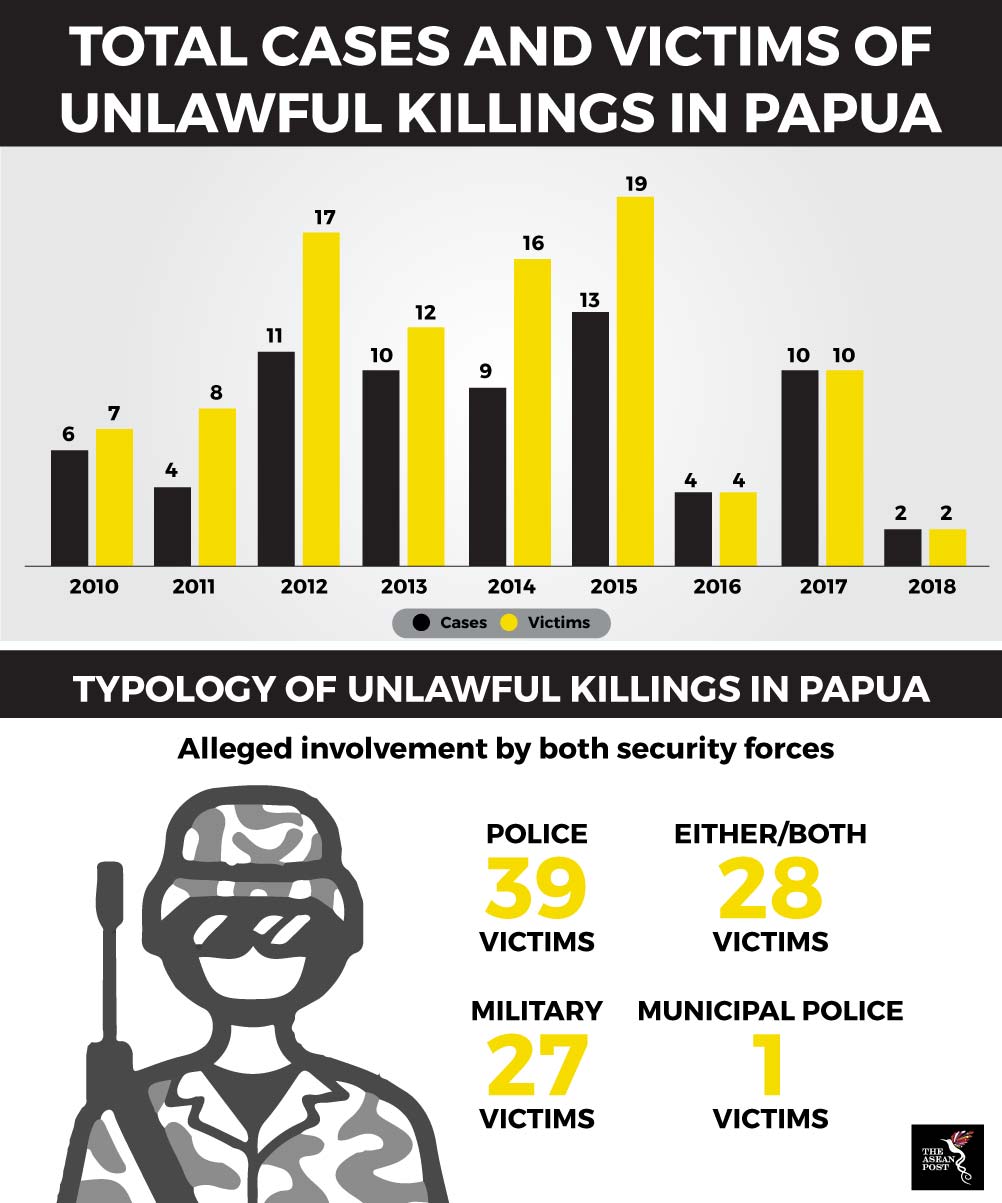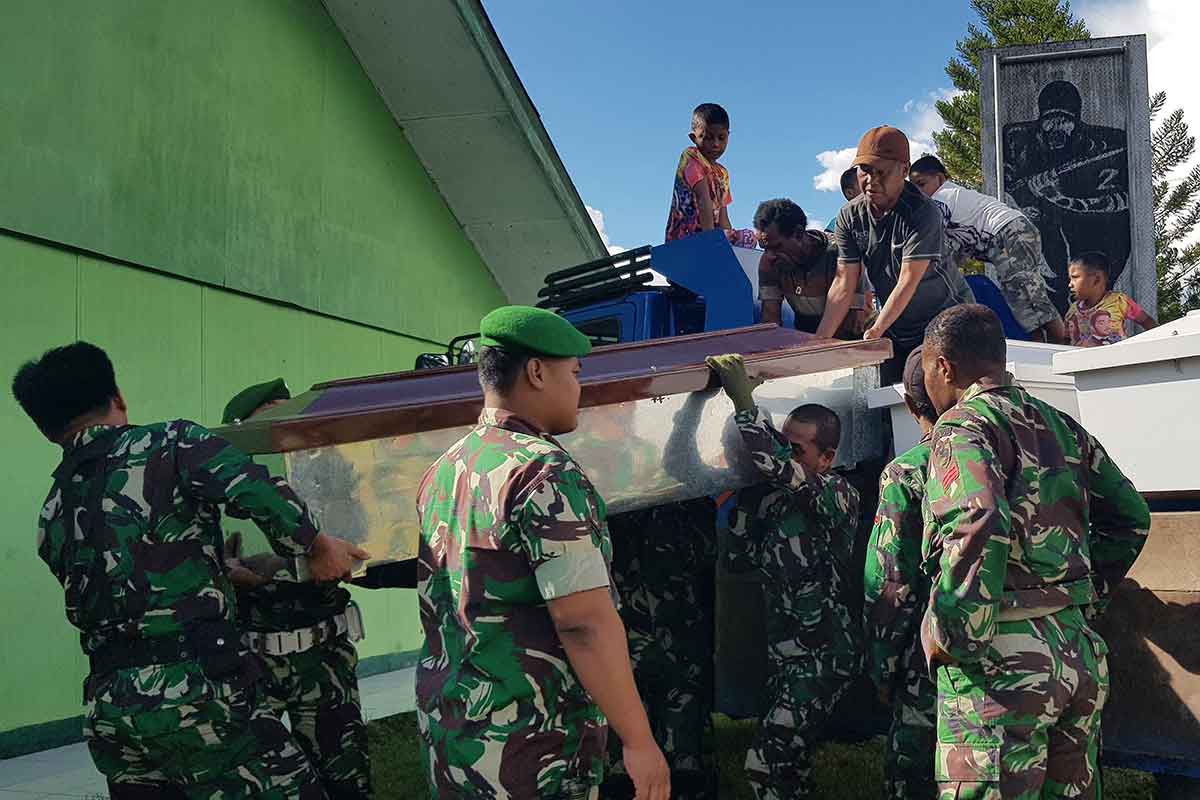The situation in West Papua is getting increasingly dire after reports have revealed that up to 31 people have been killed in a central district of the region on Sunday.
Currently, exact numbers and accurate reports of what is happening in West Papua is difficult to gather as the international media is effectively banned from reporting there. According to Agence France-Presse (AFP), those killed were believed to be construction workers. The armed wing of the National Liberation Army of West Papua (TPNB) has claimed responsibility for the attack on the orders of regional commander Ekianus Kogoya. TPNB also insisted that those killed were not civilians but Indonesian military instead.
The incident has sparked a response from the government with police and military teams sent to the area on Monday which came under rebel gunfire and saw one soldier killed and another wounded in the firefight, according to Indonesian authorities.
Indonesian president Joko Widodo said Wednesday that he backed the hunt for those behind what he described as the "alleged assault".
"I have ordered the chiefs of the military and national police to chase and arrest all the perpetrators of these barbaric and inhumane acts," he told reporters in Jakarta.
The growing tensions between West Papuans and the Indonesian government has many observers worried that violence could escalate in the coming weeks. There are also fears that the government will conduct violent crackdowns on West Papuans.
The killings come after protests in Papua and also Surabaya demanding independence for West Papua. The protests were held on 1 December, marking West Papua’s “Independence Day”, the date many West Papuans see as the day they became independent from the Dutch before their country was occupied by Indonesia. Reports claim that hundreds of protesters supporting the cause were arrested for taking part in the protest. Activists have claimed that Indonesian authorities arrested about 600 protesters, including 105 in West Papua and around 450 in the rest of Indonesia.
 Source: Amnesty International
Source: Amnesty International
History
While West Papua and Papua New Guinea share the same island of New Guinea, Papa New Guinea became an independent state in 1975 while West Papua has been occupied by Indonesia since 1969. West Papua was integrated into Indonesia in 1969 after a United Nations (UN) sponsored referendum which is seen by many as a sham. The referendum involved 1,000 hand-picked West Papuans, of which many were allegedly bribed or threatened by the Indonesian military.
The relationship between West Papua and the Indonesian authorities has been rocky since then – to say the least. Papuans are known to be ethnically, linguistically and culturally distinct from the rest of Indonesia and the majority of them favour independence over Indonesian rule.
West Papuan activists have fought for independence for decades and there are often claims that the Indonesian military and to a larger extent the Indonesian government is guilty of rights abuses against Papua's ethnic Melanesian population including the alleged extrajudicial killings of activists and peaceful protestors.
The Free West Papua Campaign also claims that the government is engaging in genocide against the Papuan population, alleging that 500,000 civilians have been killed since Indonesia occupied the region. While these numbers are difficult to verify, a study by the University of Sydney has revealed that the continuation of current practices in West Papua “may pose serious threats to the survival of the indigenous people of the Indonesian province of Papua.”
Despite widespread protests, it does not seem that the treatment of West Papua’s people will change anytime soon. The government is adamant that West Papua is an “irrevocable part of Indonesia” and granting the region independence is extremely unlikely. Part of this could be because West Papua is situated on mineral-rich land. Currently British Petroleum (BP) is working on a US$10 billion natural gas field in Tangguh, off West Papua.
The international community has also been quiet about the situation in West Papua. So far, the only nation that has shown support for West Papua’s independence is Vanuatu, a small nation with a population of just over 200,000. The silence from the international community – especially ASEAN –is deafening, and as long as they remain silent, the condition of West Papuans is not expected to improve.
Violonce begets violence. The killings by TPNB is reprehensible, but as long as the military continues to occupy West Papua and their abuses continue, peaceful relations between the two could be far off.
Related articles:
